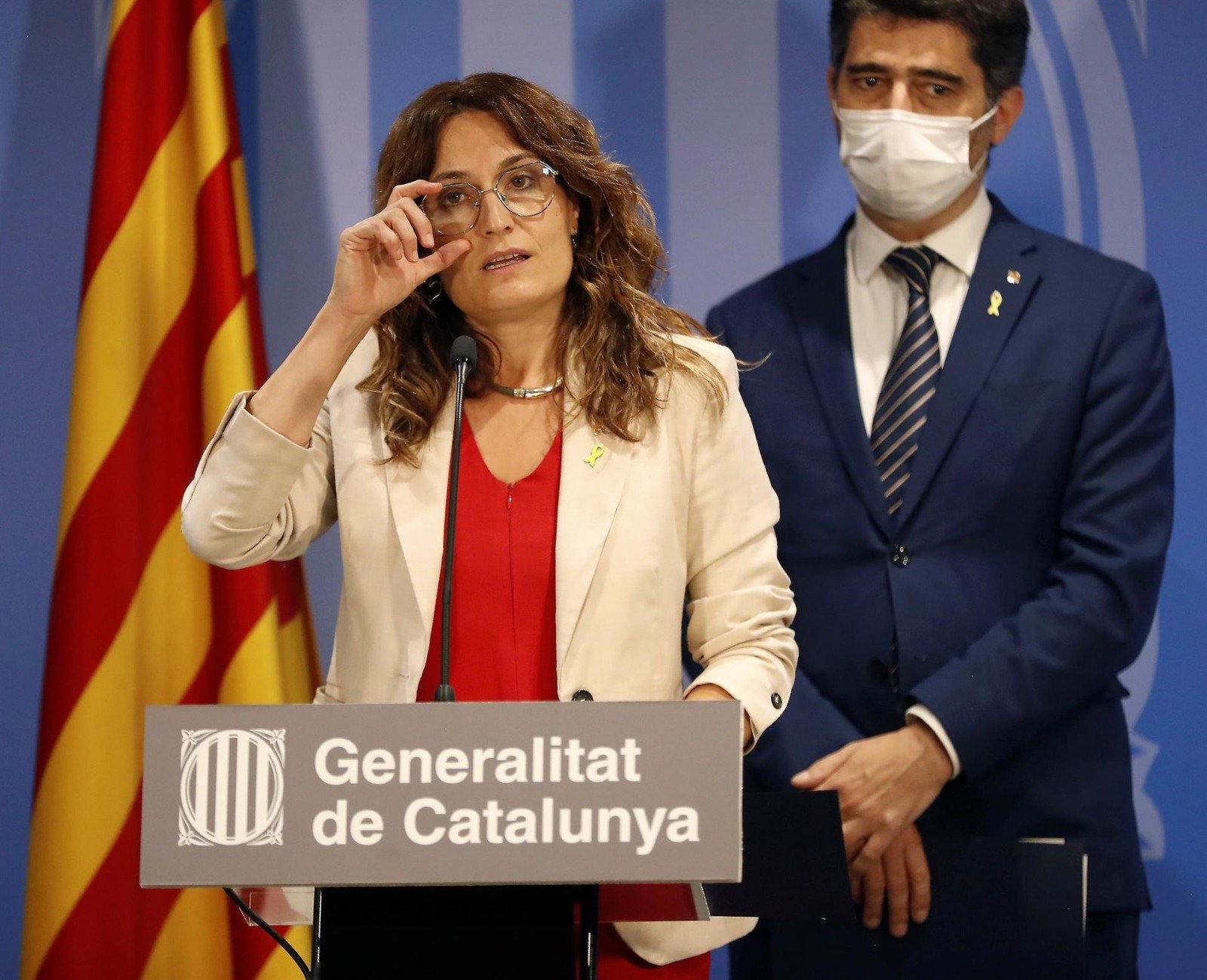A single meeting of the bilateral commission between the Spanish and Catalan governments, but two different press conferences afterwards to evaluate it. The Spanish government, through the new territorial minister Isabel Rodríguez, was full of self-congratulation at the agreements reached in this Monday's meeting. She spoke of "progress" and a "fruitful" meeting of this under-used committee which, it should be noted, is a different beast from the promised dialogue table on the political conflict. The Catalan leadership, on the other hand, had sought to use this economic and competencies-based forum to demand the transfer into Catalan hands of 56 pending powers, and saw the Spanish response as triumphalism. After detailing the few agreements actually finalized, both vice president Jordi Puigneró (Junts) and presidency minister Laura Vilagrà (ERC) warned that the results had been "thoroughly insufficient". The most important agreement - the extension of Barcelona's El Prat airport - was concluded at another meeting. As well, it was not possible to talk at bilateral level about the European funds, as the Catalan delegation intended.
The Spanish state and the Generalitat of Catalonia met for two hours in Madrid, after weeks of technical meetings. In the Catalan delegation, in addition to Puigneró and Vilagrà, there was also their delegate in Madrid, Ester Capella, and the secretary general of the vice presidency, Ricard Font. The Spanish delegation, in addition to Isabel Rodríguez, was attended by the Spanish government's delegate in Catalonia, Teresa Cunillera, the secretary of state for finance, Inés María Bardón, the secretary of state for transport, Isabel Pardo de Vera, and the secretary of state for relations with parliament, Rafael Simancas.
Two major agreements were sealed. First of all, the transfer to Catalan hands of university scholarships, which will be finalized in October and should be in force for the 2022/23 academic year. That is, just one of the 56 transfers which the Catalan authorities asked for, matters approved as legally possible by Catalonia's 2006 Statute of Autonomy. Secondly, the pending investment in Catalonia of 200 million euros, part of the third additional provision of the Statute, which establishes that the state's investment in Catalonia must be proportional to its contribution to the state GDP. For years, this provision has been unfulfilled. Of that 200 million, 100 will be transferred to the Catalan government "imminently" and the rest - in two transfers of 50 million - before the end of the year.
There are other issues, however, that did not get so far down the track, and for which the joint sub-committees provided for in the Statute will be activated. Specific working groups will also be set up, such as the one that will study the necessary changes in state legislation to make effective the transfer of the Minimum Income scheme, which will reinforce the right to guaranteed income. A specific working group will also be created to study the legislative changes in state regulations to allow the Catalan rent control law to win constitutional favour. In this regard, both Catalan and Spanish administrations made efforts to reduce the institutional conflict, which has so many times led to such issues being decided by the Constitutional Court. There is also a commitment to study the complete transfer of Barcelona suburban rail to the Catalan government - another shaggy-dog story where promises to hand power to the Catalan authorities never went beyond halfway.
Among the transfers that could take place in the coming months are those of specialized health training (MIR), maritime rescue and some aspects of labour legislation related to labour inspection. Also on the table is the fate of the Via Laietana headquarters of the Spanish National police.
"At this meeting we did not achieve the goal: we wanted many more transfers to be agreed," said the Catalan minister, Laura Vilagrà, admitting that it was "insufficient" because they sought much more specific accords. Vice president Jordi Puigneró spoke in the same terms: “The actions that are being taken will show whether or not they really intend to move forward in the area of Catalan self-government. But what we want is something else. Those who want self-government are the ones who need to accelerate. And for the moment, regarding acceleration, there is not much." Puigneró also expressed his displeasure that European funds could not be addressed bilaterally at the meeting, but made it clear that "we will continue to pressure."
The two governments agreed that there will be at least one meeting a month of the various sub-committees and groups and that the full bilateral commission will meet again in February 2022 to analyze progress.
La Moncloa, another version of events
The speech of the Spanish territorial policy minister, Isabel Rodríguez, speaking at her ministry, was very different. The Socialist politician described the meeting of the bilateral commission as "fruitful and very executive". The spokesperson for the Pedro Sánchez cabinet also affirmed that "there was content, a timetable and progress". Rodriguez came out with a "very positive feeling."

